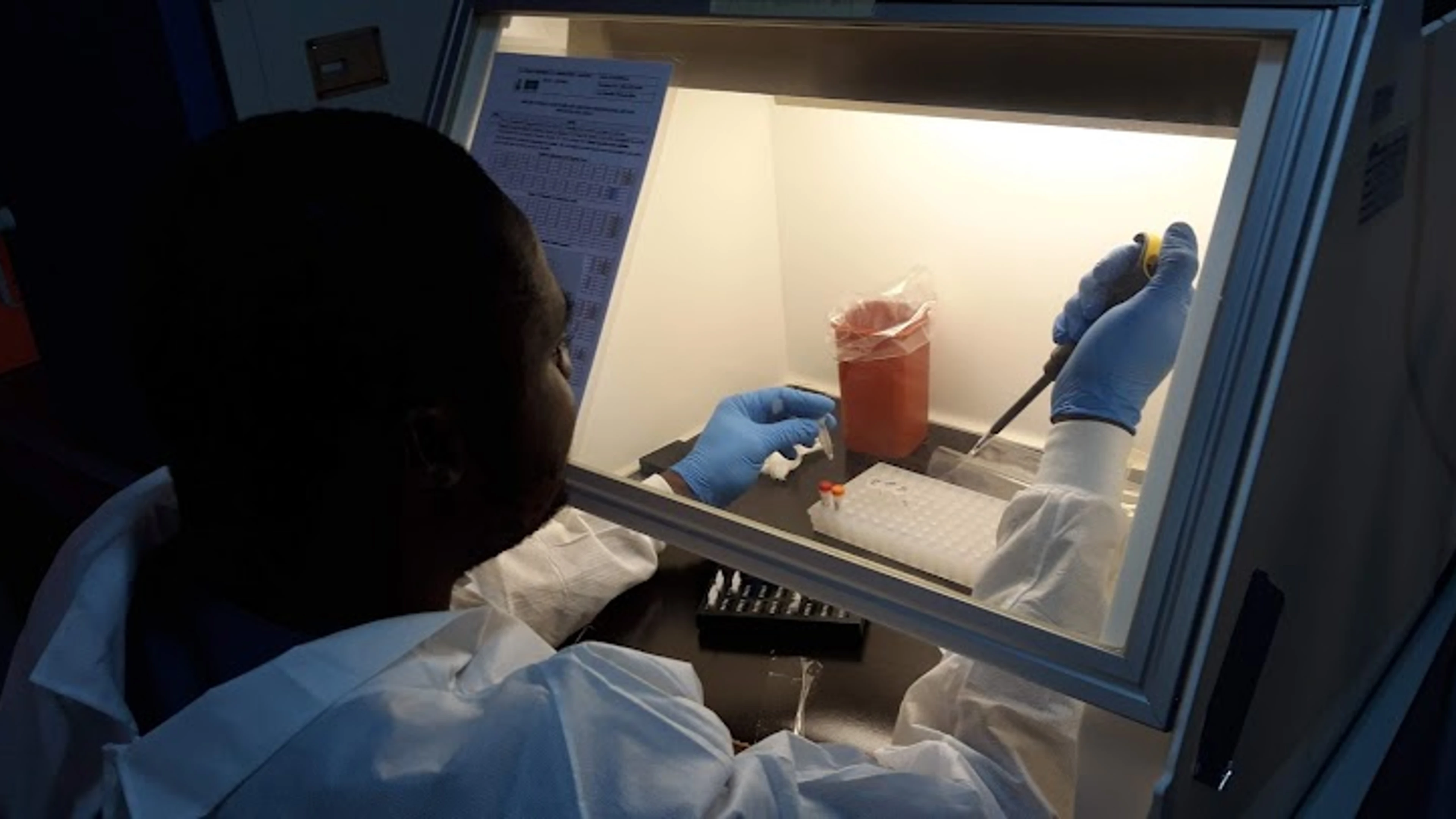Testing the tests: Scientists seek out best on-the-spot diagnostics for deadly Nipah and Lassa

15 February 2024, Oslo, Norway and Geneva, Switzerland – Scientists who specialize in viral detection are embarking on a search for the most reliable on-the-spot tests for two viral diseases that have the potential to cause deadly epidemics.
In a four-year project funded by CEPI and led by FIND, the team will examine and evaluate all available point-of-care testing options for the two diseases. They will work to advance the best performing ones for further testing, approval and widespread use down the line.
“High quality and rapid diagnostic tests for Nipah and Lassa are badly needed to be able to help patients as soon as they seek healthcare in the community, and to help public health workers respond to outbreaks. Fast disease detection means health workers can begin targeted treatment quickly and make referral to the next level of health care for better investigation and management if needed,” said In-Kyu Yoon, CEPI’s Executive Director for Research and Development. “The rapid tests can also be used for public health interventions such as patient isolation and contact tracing, and to help develop tools such as vaccines to counter these deadly diseases.
CEPI has agreed to grant up to $14.9 million to the project, which will run from February 2024 through January 2028. FIND researchers will identify the criteria for an optimum rapid diagnostic test and select rapid tests for Lassa and Nipah to test against those criteria. Successful diagnostics will be progressed to licensure for widespread use.
“Access to quality, rapid diagnostic testing is the cornerstone of global health security. This initiative is the first of its kind under the 100 Days Mission framework of integrated development of a portfolio of tools spanning diagnostics and vaccines,” said Dr Cassandra Kelly-Cirino Vice-President of FIND’s Health Programmes. “Lack of testing to identify frequent outbreaks of both Nipah and Lassa puts individuals at risk of these deadly diseases as well as posing a threat to whole populations. Having the tools to spot these outbreaks early is critical so that outbreaks can be contained. This FIND–CEPI collaboration will accelerate development of urgently needed, high-quality tests that can be used within communities and primary health centres so that people can quickly get the care they need and transmission can be stopped in its tracks. We are also concerned about making sure these tests are available, accessible and affordable to the countries that need them.”
Nipah is a zoonotic disease first identified in 1999 in Malaysia. Its natural hosts are fruit bats, also known as “flying foxes”, and it can spread to people from infected animals or, in rarer cases, from person-to-person. Nipah outbreaks have until now been confined to South and Southeast Asia, but fruit bats are found in a large geographical area covering a population of more than two billion people, making this virus a potential pandemic threat. Nipah can cause severe, rapidly progressive illness, including inflammation of the brain, and up to 70 percent of those infected with Nipah die.
Lassa Fever is a rat-borne viral disease which causes acute haemorrhagic disease in many countries across West Africa. As many as 80 percent of people infected with Lassa virus may be asymptomatic, and initial signs and symptoms are non-specific, making accurate early diagnosis difficult. Among Lassa patients hospitalized with severe disease, the death rate is around 15 percent.
There are currently no available vaccines against Nipah and Lassa, but several are in development. CEPI is funding four vaccine candidates against Lassa and three against Nipah. As part of the vaccine development process, high quality diagnostic tests are essential, particularly for the optimal design and conduct of clinical trials. With the vaccine pipelines for both Nipah and Lassa progressing towards late-phase clinical trials, robust, on-the-spot tests will be vital to rapidly identify cases. Along with the critical need for tests to ensure early detection for rapid patient management and outbreak detection, they are also key to aiding the identification of high-risk areas to better design efficacy trials, and to providing proper case management for infected patients enrolled in studies.
Early pathogen detection is critical to the 100 Days Mission – a goal, embraced by the G7 and G20, to develop vaccines, diagnostics and therapeutics against novel pathogens within 100 days of virus identification and give the world a chance of preventing the next pandemic. The potential pandemic pathogen must first be correctly identified to start the vaccine development process, and pathogen spread must be well characterized to support ongoing vaccine development. Rapid and accurate testing empowers patients and healthcare workers to make informed decisions about protecting health and to prevent the infection of others, as well as providing robust data to support evidence-based public health decision-making. This project is part of the framework agreement between CEPI and FIND.
CEPI and FIND are committed to enabling equitable access to the outputs of their partnership, in line with CEPI’s Equitable Access Policy and FIND’s Global Access Policy, ensuring that any new tests or vaccines developed are made accessible to those who need them. Relevant project results, including data generated as part of this project, will be published open access for the benefit of the global scientific community.
A French translation of this press release is available here.
–ENDS–
About CEPI
CEPI was launched in 2017 as an innovative partnership between public, private, philanthropic and civil organisations. Its mission is to accelerate the development of vaccines and other biologic countermeasures against epidemic and pandemic disease threats and enable equitable access to them. CEPI has supported the development of more than 50 vaccine candidates or platform technologies against multiple known high-risk pathogens and is advancing the development of rapid response platforms for vaccines against a future Disease X. Central to CEPI’s pandemic-beating five-year plan for 2022-2026 is the ‘100 Days Mission’ to compress the time taken to develop safe, effective, globally accessible vaccines against new threats to just 100 days.
About FIND
FIND accelerates equitable access to reliable diagnosis around the world. We are working to close critical testing gaps that leave people at risk from preventable and treatable illnesses, enable effective disease surveillance, and build sustainable, resilient health systems. In partnership with countries, WHO and other global health agencies, we are driving progress towards global health security and universal health coverage. We are a WHO Collaborating Centre for Laboratory Strengthening and Diagnostic Technology Evaluation. For more information, please visit www.finddx.org.


.webp)
